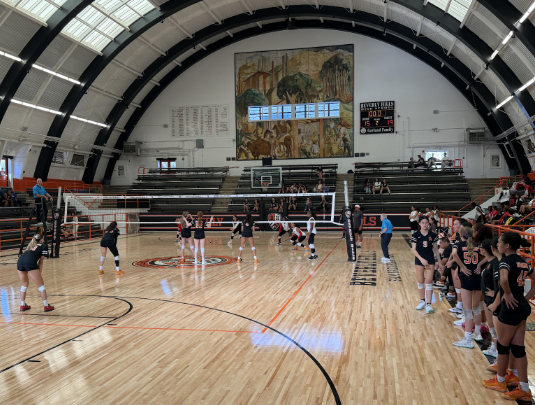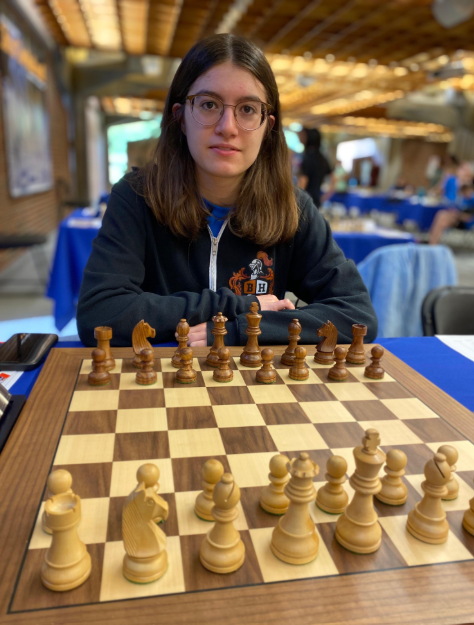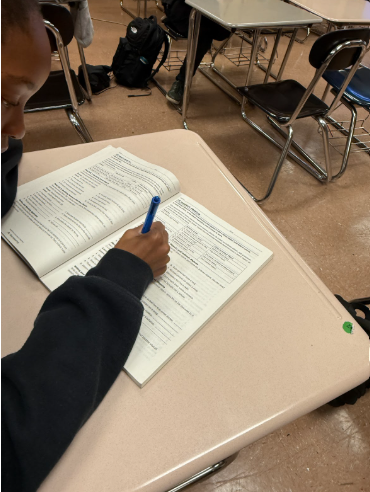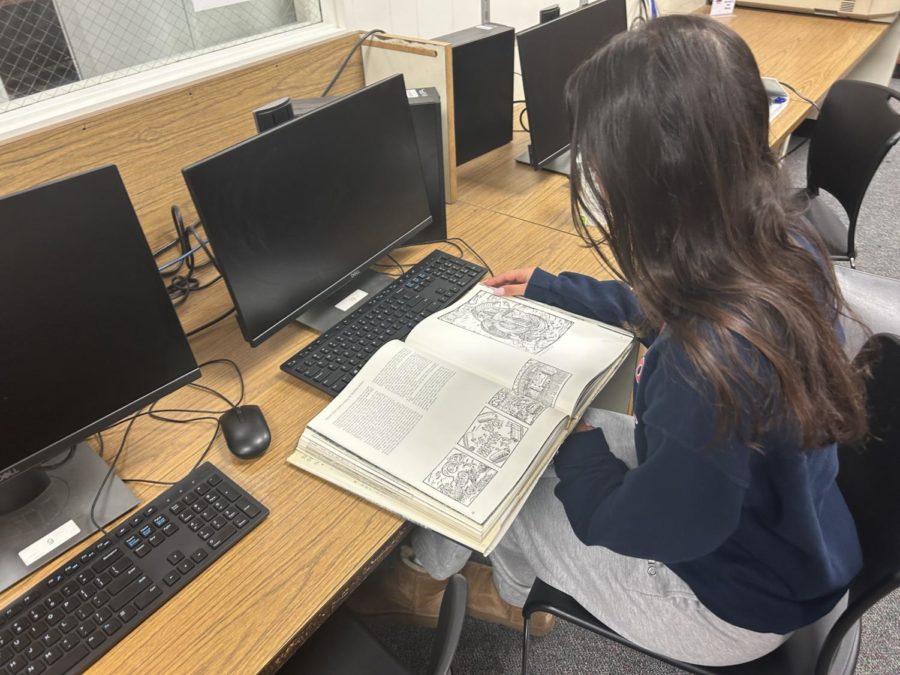10 tips on studying for finals
Beverly student studies with a textbook from the library.
May 26, 2023
With finals less than two weeks away, students are likely to start studying. But how should we prepare for finals? Here are 10 studying tips that might help with these upcoming exams.
1. Spend 30 minutes each day studying your subjects
The average student has six classes, and if you study for 30 min each class every day rather than cramming, it should only take about three hours. By doing this until finals, you are training your brain to remember the information you’re studying every day and creating positive studying habits.
2. Use flashcards (online or on paper)
Flashcards are a great method for remembering specific information—especially for vocabulary or small tidbits of information. You can write the material down or use Quizlet to prepare an online deck for you or any of your friends. Some teachers even provide their students with Quizlets.
3. Repetition
When writing down information, you the brain more time to fully process and understand the material being presented. According to Oxford Learning, “Writing by hand is also shown to increase memory and retention. The act of putting pen to paper activates areas of the brain that helps student increase their comprehension. It also involves more senses and motor neurons than when typing on a keyboard.”
4. Eat breakfast the morning of your finals
This may sound silly, but eating a proper breakfast gives your body and mind more strength and nutrients. Research from a BBC study shows that the students who ate before an exam had higher test scores than those who did not. The same study proved that those who drank water during an exam did 5% better than those who didn’t.
5. Form a study group
While some people tend to work better on their own, many learn best while working in a group of people so there is someone to hold them accountable when slacking off. This could keep you motivated to study, so ask whoever you are most productive with to go to a quiet area and take a few hours to go over material.
6. Put your devices away
There is nothing more distracting than a beeping phone next to you. Even if your phone’s on silent, its presence is enough of a distraction. Keeping it out can serve as a temporary disturbance, which will likely hinder productivity. If you don’t want to put your phone away, give yourself a time block: set a timer for however long you want to spend studying, and once it goes off, you can reward yourself by using your phone.
7. Create or ask a teacher for a practice test
Creating a practice test has proven to really help students prepare for the test and make sure they know the materials being tested on. Though some teachers may not provide you with a practice test, some have office hours which are great for getting extra help with materials you may not feel confident in.
8. Don’t wait until the last day to study
This step is definitely necessary. Fully processing information takes time, and when studying the day before, you aren’t giving yourself or your brain enough time to remember the information. Give yourself time to study; start reviewing a couple of weeks in advance to prevent cramming.
9. Take breaks
Don’t think that non-stop studying is the answer to remembering material. Without taking a break, your stress levels rise. Take time to rest, and remember to eat a snack or drink water during breaks.
10. Don’t pull an “all-nighter” studying
This, I would say, is the most important tip to follow. If you pull an all-nighter the night before your finals, expecting it to help, you’ll find yourself disappointed. Brains tend to function and learn better during the day or the morning after a night of sleep. According to the National Institute of Neurological Disorders and Stroke, “Without sleep you can’t form or maintain the pathways in your brain that let you learn and create new memories, and it’s harder to concentrate and respond quickly.”
Teachers themselves gave study tips.

Don’t worry, Normans, there are only a few days left of school until summer break begins!
































